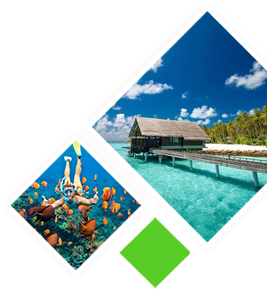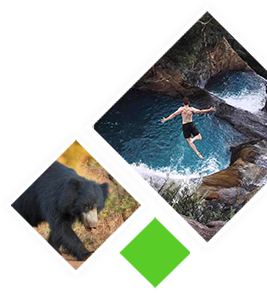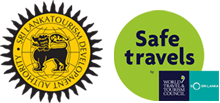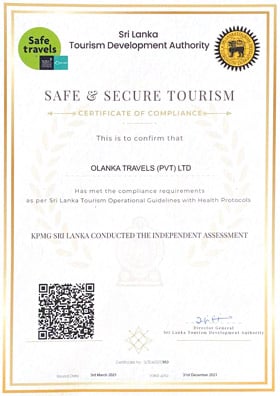We offer a wide range of accommodation from private boutique hotels, villas, eco lodge and tents. But, some of our nature & adventure trips involve travelling to remote or undeveloped outstation destinations where hotel accommodation of International tourist standard may not exist & facilities are relatively poor.
No. Smoking and having liquor in public areas is banned in Sri Lanka. The smoking ban is also in effect at enclosed public places such as restaurants and social clubs.
True. Full Moon days (known as Poya days), are of religious significance to Buddhists and devoted to prayer and meditation. Out of respect for Buddhist religious rites, abstinence is practiced. The government has decreed that all liquor shops and meat shops & entertainment centres remain closed on Poya days .
We advise against drinking tap water unless it is purified. We recommend you to use Bottled water in containers with serrated seal, but not tops or corks. Most hotel rooms have boiled water in thermos flasks, which is safe to drink.
Sri Lanka has its own variety of local beer. Also, two variations of local liquor exist, ie.Toddy & Arrack. Toddy is a natural intoxicating drink, tapped from the palm trees. Fermented and refined toddy becomes Arrack. Imported beer and foreign liquors cost almost the same as in most western countries.
There’s plenty of fresh fruit juice available both in major restaurants and smaller ones. It’s as much delectable as healthy. Popular international soft drinks are found even in the small village boutiques. Thambili or King Coconut is a refreshing sweet, clean and cheap natural drink you’ll find by the wayside.
First, you can have Ceylon Tea which hailed as the world’s best type of tea. If you’re a coffee fan, local coffee may be up to your taste, if a little strong. If you long for a good espresso, you may get it while in Colombo but not elsewhere.
The food is exclusively based on Sri Lankan rice and curry menu. The curries are mostly Sri Lankan vegetables; chicken and fish may be included.
‘Halal’ food isn’t much common in major hotels. The Galadari and Holiday Inn in Colombo serve halal food as does the Confifi group of hotels (Eden, Riverina & Club Palm Garden). Apart from the Halal restaurants in Colombo and Kandy, they’re hardly elsewhere. The best alternative seems to be seafood.
Star hotels and major restaurants sport a ‘vegetarian section’ in the menu. The smaller local ‘rice and curry’ restaurants may claim the food is vegetarian, but it often includes a serving of fried fish or sprats (anchovies). However, the ‘South Indian’ vegetarian restaurants are purely vegetarian.





